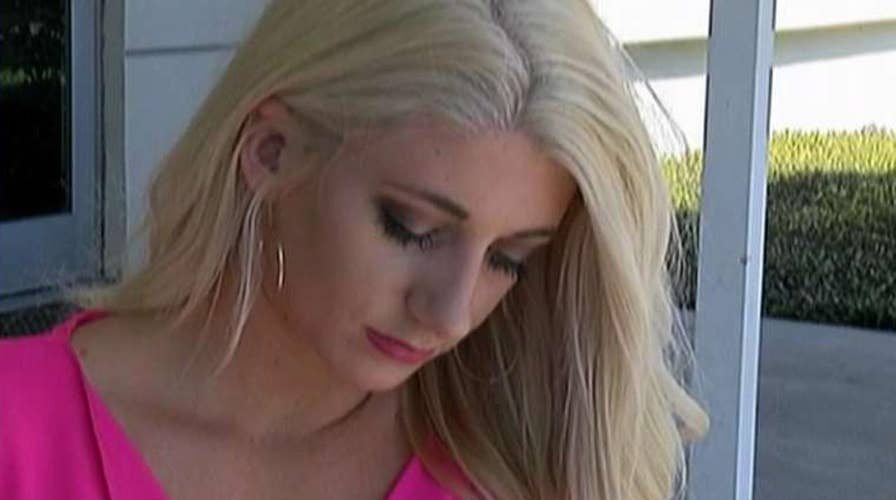Ex-Saints cheerleader says NFL team’s policies discriminate
Former New Orleans Saints cheerleader is suing the team after being fired for posting a photo of herself in a one-piece outfit on Instagram; reaction on 'The Greg Gutfeld Show.'
A former New Orleans Saints cheerleader who is suing the organization and the NFL over workplace practices alleges that the team’s policies were used to control cheerleaders on and off the field.
On the Facebook Watch show “The Scarlett Letter Reports,” Bailey Davis, 22, told host Amanda Knox that the Saints’ policies kept control of her and her fellow cheerleaders whether they were at work or not. She also said the team had different rules for football players.
“Red flags were popping up in the beginning. We would have weigh-ins every month and everyone was so concerned,” Davis said. “You would not eat that day. You would not drink anything because you had to be the weight you were at auditions or you could be benched.”
CLICK HERE TO GET THE FOX NEWS APP
Davis then detailed the extensive lengths some would go to maintain their weight.
“I would hear things going on and there were girls that would sweat themselves out in the car before weigh-ins and before practices. I was just … blown away,” Davis said.
“There was one practice where a girl sweated herself out in the car and she passed out and had to go to the hospital. The director told us to get the ambulance to park on the side and no one would know.”
Davis said even though she was only making $10 per hour, Saints cheerleaders were told to keep up their appearances at all times, including wearing makeup at all times, have nails manicured at all times and have a spray tan for games and appearances. Davis said the cheerleaders had to pay for all these beauty requirements.
COWBOYS STAR EZEKIEL ELLIOTT BLASTS NFL AFTER FINE FOR POST-TD DONATION TO SALVATION ARMY
According to Broadly, the Saints had guidelines on how they were supposed to act.
“Everything was very controlled – even our social media. We couldn’t post semi-nude, nude or lingerie,” she said. The big one – no fraternization. We couldn’t talk to the football players. We couldn’t follow them on social media. We couldn’t be caught where a football player was. I was told that was the case because they were protecting us. We’re supposed to just kind of hide ourselves and not be known by them.”
Davis said a rumor began to swirl about her being seen at a party with an unidentified Saints player and she said she told the organization’s human resources department it wasn’t her. Four days later, she posted a photo of herself in a lace black bodysuit, which she claimed led to her dismissal.
A day after the photo was posted, Davis said she was asked to resign. She said she was confused because she “shows more skin on the field.” Davis said she didn’t resign because she didn’t think she did anything wrong to give her a reason to leave the team.
Davis said she sat down with a Saints official, along with her mother – a former Saints cheerleader who continued to work for the team, but had no disciplinary role. Davis said she asked the official why she was asked to resign and “from that point on I never got to tell my side.”
“He laid into me about my character and that I was representing the team in a bad way. One of the things he said was ‘perception is reality.’ So basically how he sees the photo is how it is. He sees it as something sexual and dirty and seeking attention. He told me he would never let his granddaughters post something like that.
“I was completely slut-shamed out of that room and I never felt so worthless about myself.”
Since being fired prior to the start of the season, Davis filed a complaint with the Equal Employment Opportunity Commission. Her lawyer has said the team’s policy was tantamount to a double standard.
The Saints have since denied any discrimination took place.
“The Saints organization strives to treat all employees fairly, including Ms. Davis,” Leslie A. Lanusse, the team’s lawyer, said in a statement in March. “At the appropriate time and in the appropriate forum, the Saints will defend the organization’s policies and workplace rules. For now, it is sufficient to say that Ms. Davis was not subjected to discrimination because of her gender.”









































